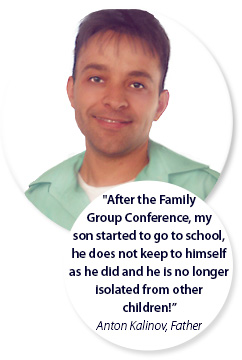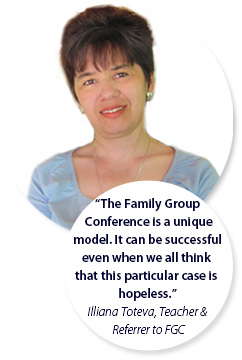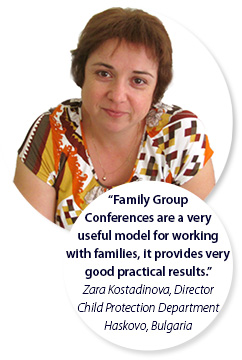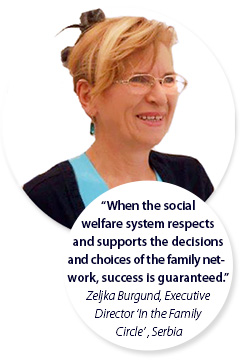Where will Carla and Lizzy live in the future?
Puberty issues in the foster family
Carla and Lizzy are 14 and 15 years old. At the ages of two and three, they came to live with foster parents, with whom they grew up. At that time, their parents were already separated. While Carla and Lizzy only met their parents from time to time during their childhood, contact became closer and more regular when they were teenagers. There is a strong emotional bond between the parents and the two girls. There is also a good bond with the foster parents, but as Carla and Lizzy reached puberty, questions of origin, roots and belonging became more central. After parental visits, the two were often torn apart and behaved negatively towards the foster parents. The rules of the foster family were no longer accepted.
Both of Carla and Lizzy’s parents are now living a stable everyday life and want their daughters to return. Carla and Lizzy can also imagine living with one of their parents. The mother has sole custody and, at the suggestion of the specialist, commissioned a family group conference (FGC).
Carla and Lizzy were initially sceptical and surprised that they were given a say, but in the course of the preparations they recognized an opportunity for themselves.
The foster parents agreed, but feared a confrontation between the two parents.The girls’ father was skeptical, but considered participating. All of the adults assured them that Carla and Lizzy were free to make their own decisions and should not get into conflicts of loyalty. However, there were subliminal expectations that the two girls sensed.
Preparing for the family council was not easy, because:
Carla and Lizzy’s parents refused to have personal contact with each other and only communicated via the youth welfare office; after an argument, contact with the father broke off. The mother, who has sole custody, withdrew her initial agreement that the children could also live with their father.
The preparation time dragged on and it became clear that the FGC would not be able to resolve all the issues at once and that solutions would have to be found in smaller steps. For this reason, the first FGC was to take place without the father.
On the day of the FGC, the family was very tense, so it was all the nicer to see how relieved and happy everyone was after the private family time. Carla and Lizzy decided to stay with their foster parents for the time being, but also to continue spending time with their parents on a regular basis.
A meeting with the young people, the foster parents and the father, accompanied by the specialist, is to take place in the near future according to their plan in order to give the father’s wishes and ideas space. In a year’s time, everyone wants to look at the situation again together in order to possibly make a new decision. The problem is that nobody listens to each other.
The preparation was not easy for Carla and Lizzy, but it gave them the opportunity to reflect on their wishes and express themselves. Beforehand, one of the sisters said: “The family council gave us the opportunity to gather almost everyone around one table, to be heard and to listen“. We hope that this will soon be possible with the father too.
A story from Germany
Written by Susanne Schöninger Simon- FGC Coordinator in Stuttgart and translated with DeepL.com (free version) and Heike Hör
<< back to overview




